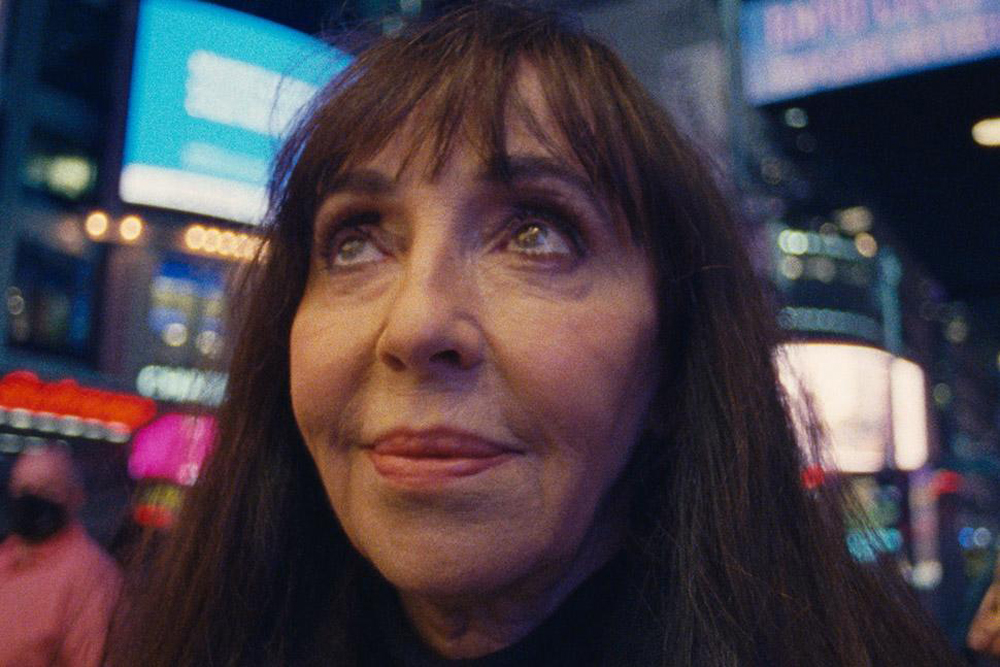“Casting directors can be the bridge between nothing and everything for an actor,” Mark Ruffalo can be heard saying near the start of “Bonnie,” a tribute to one of the leading lights of the profession in Bonnie Timmermann, long one of the first calls for directors such as Michael Mann and the Scott brothers, that becomes a trojan horse about the crucial role in any production of spotting talent and bringing it out of any given performer, making a strong case that it is an art in and of itself. Timmermann sits down to reflect on her career, as do the countless collaborators and actors who she has helped over the years, but the main attraction to most is likely the decades’ worth of audition tapes that she lets director Simon Wallon sift through for gems, material that the director and editor Michael T. Vollman know exactly what to do with.
Although footage of a 15-year-old Ben Affleck or an even younger Natalie Portman auditioning for “Heat” will naturally turn heads, Wallon and Vollman takes things a thoughtful step further as you start to see what Timmermann does in the unpolished tapes, aided by interviews with actors talking about the process of auditioning and Timmermann and various directors speaking to what they look for when they meet with an actor and the conversations they have amongst each other. Successions of clips will reveal variations on the same piece of dialogue from actors vying for a specific part, often zipping by fast enough to have a bit of whiplash realizing all the possibilities that were up for it — Benicio Del Toro is himself surprised to learn that Timmermann considered him for “Dirty Dancing,” though Patrick Swayze’s natural dance skills made him the clear favorite — but the effect shines a light on the innate variations that even the actors with the most range can bring to a part and how it may or may not fit with the director’s vision of a film.
When Timmermann is after an actor’s essence, there’s something fitting about the limited amount of biography there is in “Bonnie,” throwing out just a few tantalizing details such as being born to a boxer and an opera singer and surprising colleagues when she landed Leonard Cohen for a bit part on “Miami Vice,” though her ace in the hole was they used to date. Instead, the film is about the landscape that she helped create, saying she “may be old fashioned” for insisting on a short interview with the actor before jumping into a scene, but they prove illuminating when Adam Sandler talks about knowing he’s going to get cast in comedies since he’s on “SNL” while thinking he might be capable of something more and Keanu Reeves is asked to explain himself upon demurring on the subject of why he moved to Toronto as a child for “extraneous reasons,” ultimately answering with the kind of enigmatic and poetic quality that would become one of his great gifts later.
It certainly helps to have eloquent subjects such as Mann, Liam Neeson, Laura Linney and Laurence Fishburne speak to their craft while they articulate what Timmermann actually does, and although the absence of interviews with other casting directors is felt when discussing some broader industry claims where Timmermann was no doubt a pioneer, such as bringing diversity to casting with her work on “Miami Vice” or recognizing the indie film scene as a hotbed of actors, “Bonnie” shows the impact that just one person can have on who makes it in front of the cameras. Although Timmermann gave up any notions of being an actor herself before reaching puberty, realizing she was more skilled as an observer, it is nice to see her get such a well-deserved and insightful close-up.
“Bonnie” will screen again at the Venice Film Festival on September 9th at 5 pm at the Sala Volpi.




